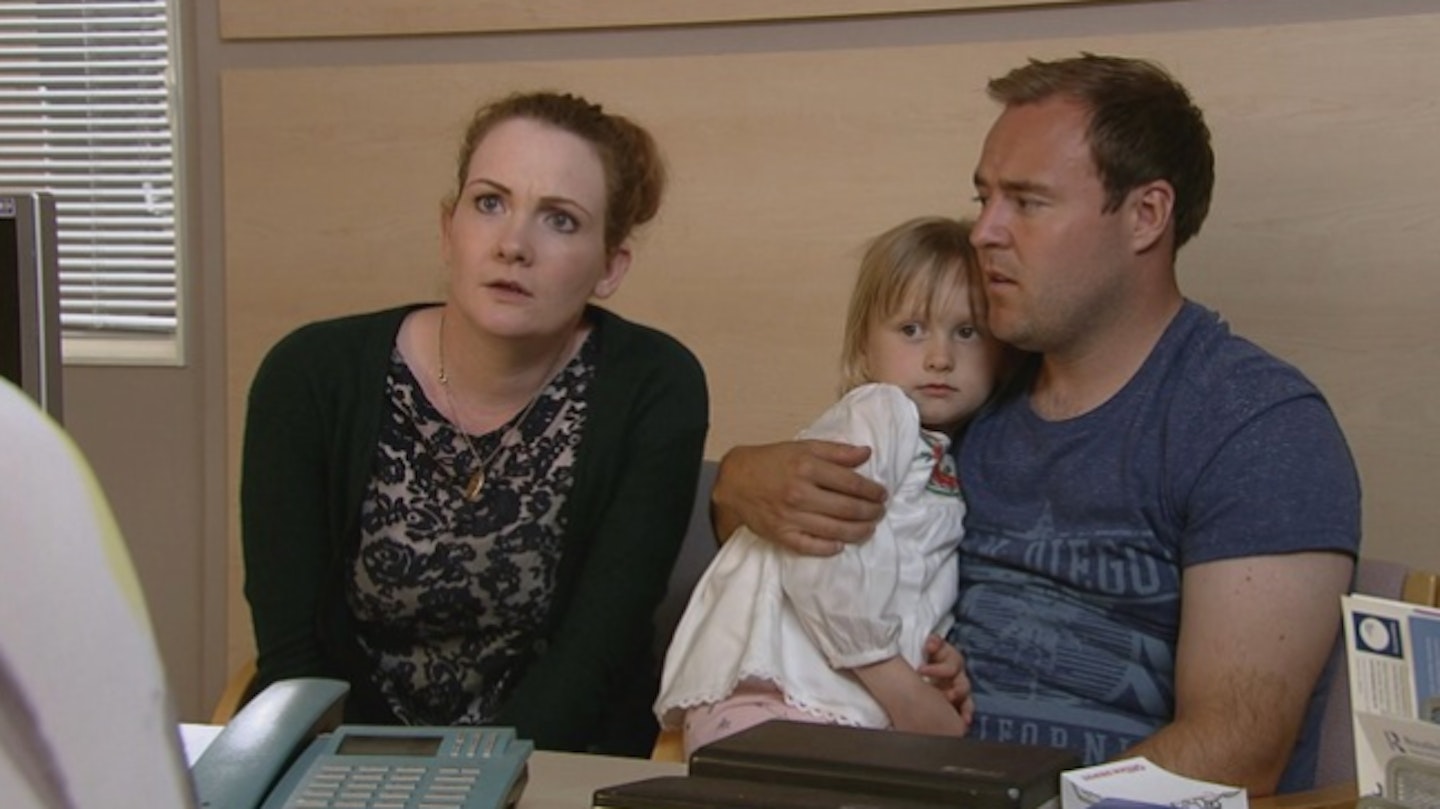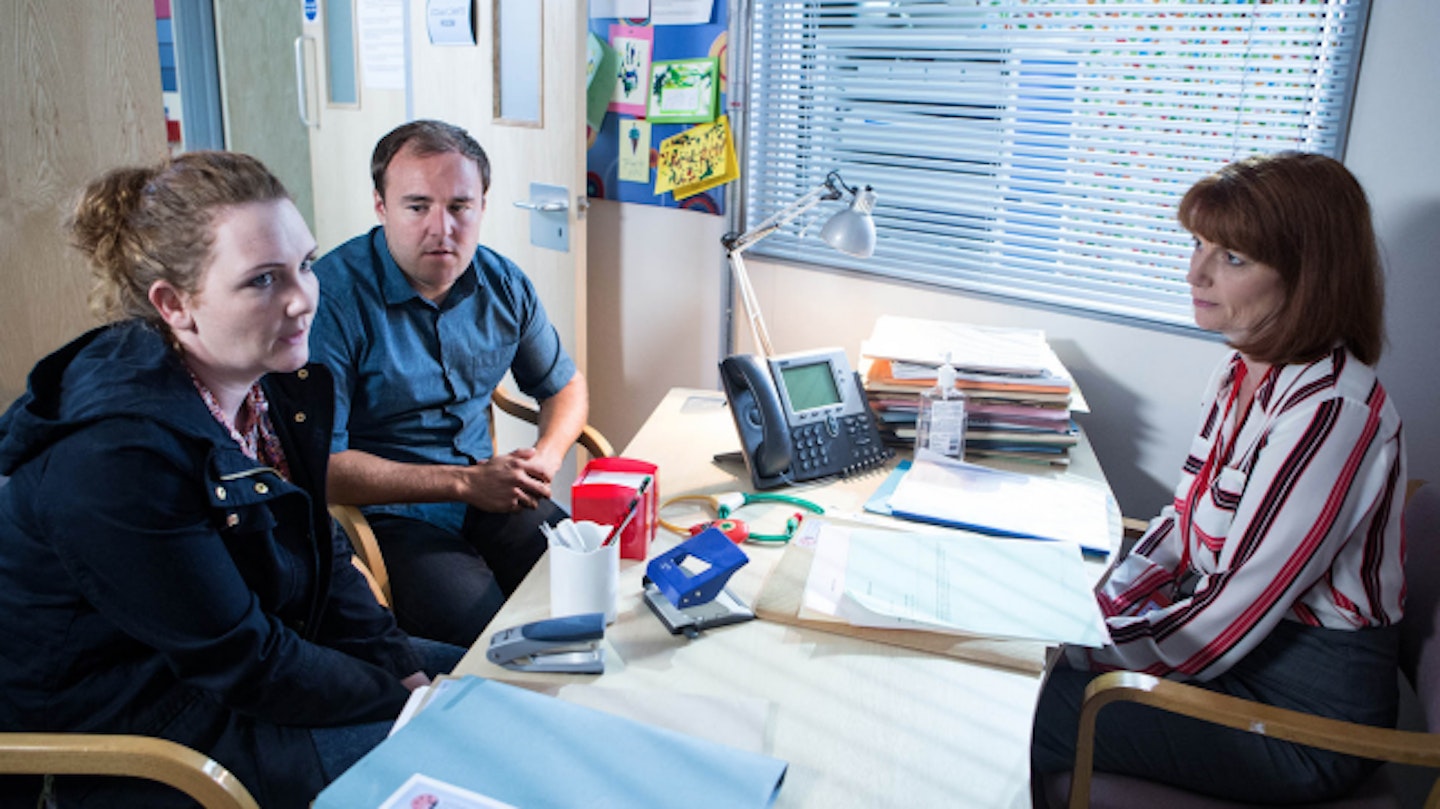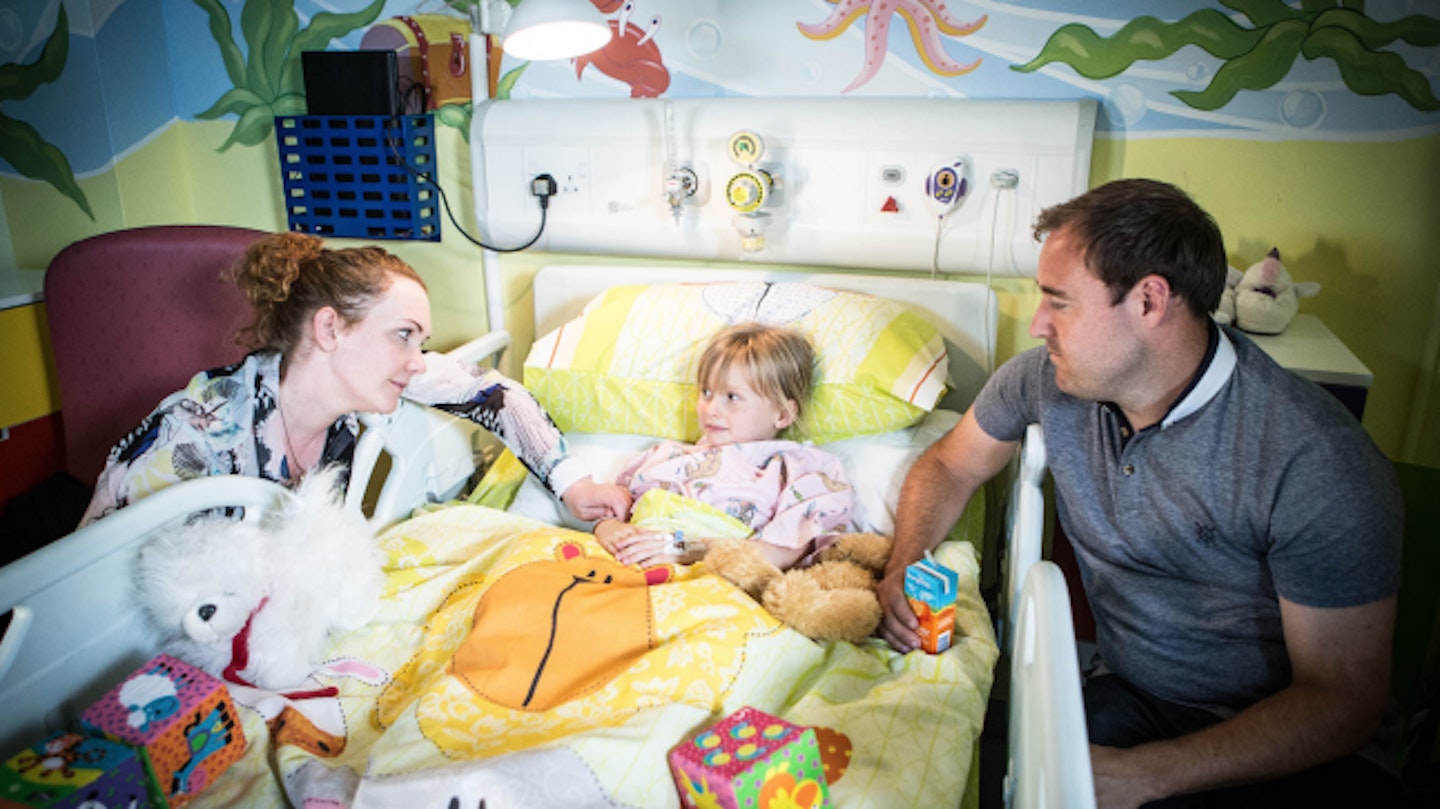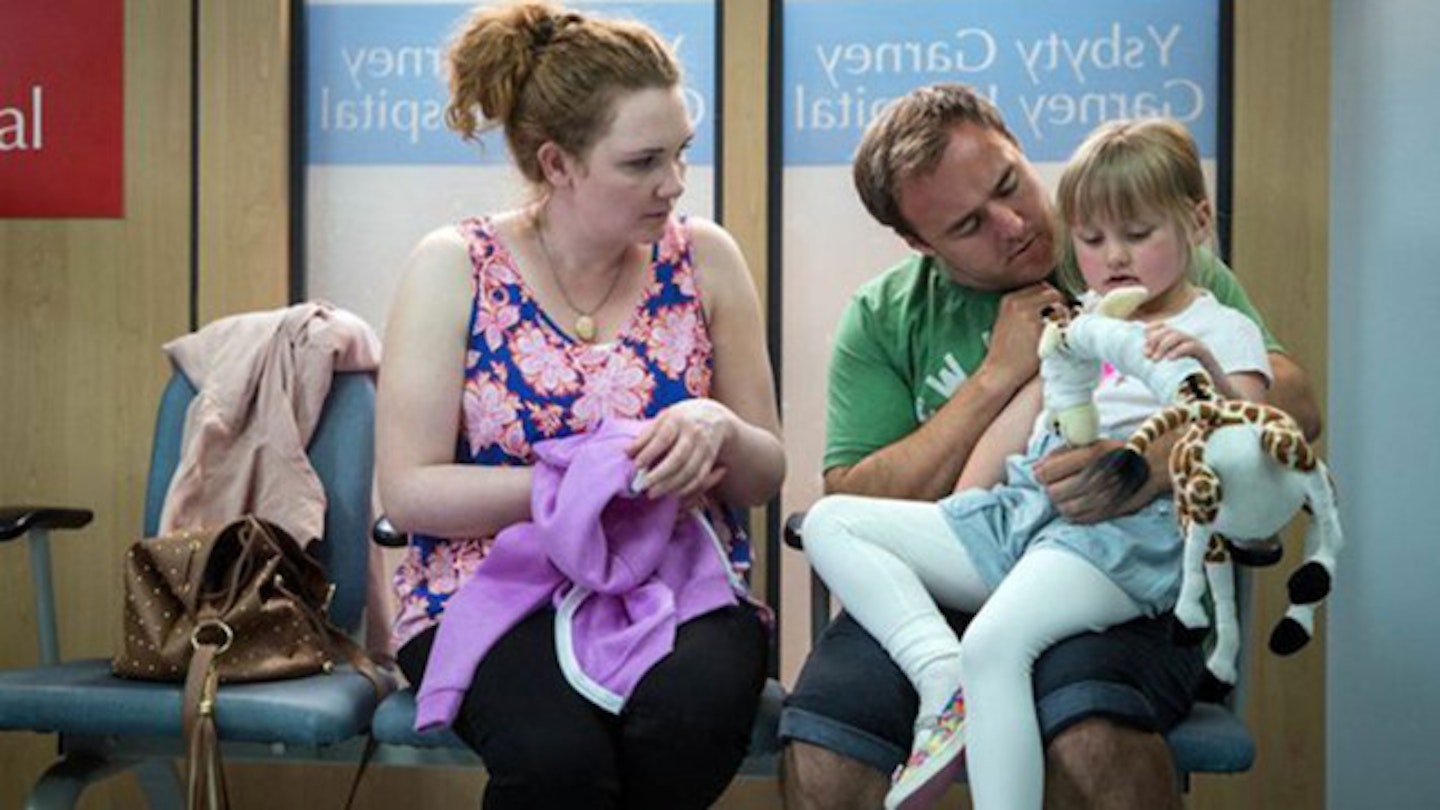As many Coronation Street fans will already know, the soaps Fizz and Tyrone have been left devastated by the news that their daughter Hope, aged five, has neuroblastoma.
Hope’s heartbreaking journey is being watched by thousands of UK viewers - and it is definitely raising awareness about the disease.
Because, even though it is the second-most common cancer found in children, it is not very well known in the public domain.
It is for this reason that Coronation Street writers have been working closely with Neuroblastoma UK, the leading UK based research charity for neuroblastoma; they want to ensure that Hope’s story is portrayed sensitively, appropriately and, above all, accurately.
Susan Hay, Chair of Neuroblastoma UK, has spoken with Closer Online to share her answers to some of the most commonly asked questions about neuroblastoma.
WHAT IS NEUROBLASTOMA?
Neuroblastoma is a tumour arising from particular nerve cells, which run in a chain-like fashion up the back of the child’s abdomen and chest and into the skull following the line of the spinal cord.
WHO DOES NEUROBLASTOMA AFFECT?
Neuroblastoma affects around 100 children each year in the UK.
It usually affects children under the age of five, and can even occur before a child is born.
The cause is unknown - and the symptoms, such as loss of appetite, and aches and pains, are so common that it is hard to diagnose the disease in its early stages.
WHAT ARE THE MAIN SYMPTOMS OF NEUROBLASTOMA?
Susan Hay, Chair of Neuroblastoma UK, explains: “Neuroblastoma most commonly occurs in the abdomen (tummy) in either one of the two adrenal glands, and a lump or swelling can be seen in this area. It can cause constipation and general discomfort and pain to the child.
“As with Hope, a lot of children just feel a little off colour to begin with, including loss of appetite and tiredness.
“It is very difficult as a parent to know when you should start to worry and demand more tests from the doctor.”

However there are some warning signs and symptoms that parents should be on the look out for.
And, if your child is feeling unwell, Neuroblastoma UK suggest you check them for the following:
“We do not wish to panic parents with any of the above, as they could also be the sign of a number of illnesses during childhood, but these are the most common to look out for,” says Susan.
“If you do feel your child shows signs, then it is best to make an appointment with your GP and explain your concerns.”
WHAT TESTS WILL BE DONE TO DETERMINE WHETHER OR NOT MY CHILD HAS NEUROBLASTOMA?
If neuroblastoma is suspected, then tests will be carried out.
These generally include:
WILL THE TESTS CAUSE MY CHILD ANY PAIN OR DISCOMFORT?
As with all medical tests, the wait for results is agonising, but the tests themselves cause minimal discomfort to the child.

WHAT WILL HAPPEN AT THE DIAGNOSIS?
If your child is diagnosed with neuroblastoma, the doctor will tell you what stage their illness is at.
These stages include:
Because early symptoms are vague, neuroblastoma is often not diagnosed until it has spread around the body - at around stage 4.
WHAT TREATMENT IS AVAILABLE FOR MY CHILD?
There are four important types of treatment that are used in the battle against neuroblastoma.
These include:
You can find out more about the treatments here.
WHAT IS THE OUTLOOK FOR A CHILD WITH NEUROBLASTOMA?
According to the NHS, the outlook is better if the child is younger and the cancer is confined to one site.
Babies with Stage 4s nearoblastoma, for example, may not need treatment if they show no other symptoms, as the cancer could go away on its own.
However older children, or infants with cancer that has spread, will usually need to undergo an intensive treatment process.

The NHS explain: “Almost half of neuroblastoma cases are an aggressive form and, despite very intensive treatment, the cancer may return.
“In these cases, further treatment will often be necessary.”
It is because of these relapses, neuroblastoma is one of the most lethal of all childhood cancers.
WHERE CAN I FIND SUPPORT?
“The word ‘cancer’ is distressing to anyone, but to hear your own child has cancer is utterly devastating,” says Susan.
“Neuroblastoma UK not only researches into new treatment for the aggressive cancer, but also offers support to parents and families who are affected by it. It can be a very lonely and isolating journey for a lot of families and siblings, and we try and help as much as we can.
“Although it is tempting to find information from the Internet, neuroblastoma affects each child differently and it is really your consultant who will have the best information.”
***To find out more about neuroblastoma, please visit www.neuroblastoma.org.uk, or call the helpline on 0300 102 0347. ***
Text NBUK15 £10 to 70070 and help save children's lives today!
